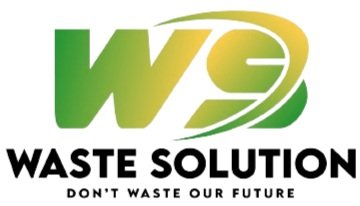Green Solutions for Waste Management
Professional waste removal companies play a significant role in developing and implementing innovative solutions to tackle waste-related challenges.
Effective waste management supports maintaining a sustainable environment. Professional waste removal companies play a significant role in developing and implementing innovative solutions to tackle waste-related challenges. These solutions not only help in managing waste efficiently but also contribute to creating a greener and healthier future.
Sustainable Waste Collection Methods
Adopting sustainable waste collection methods is a key aspect of modern waste management. Waste removal companies increasingly use eco-friendly vehicles and equipment to reduce their carbon footprint. Electric or hybrid trucks are being used for waste collection, significantly cutting down emissions. Additionally, advanced routing software optimizes collection routes, reducing fuel consumption and operational costs. Sustainable collection methods are a step towards minimizing the environmental impact of waste management activities.
Recycling and Resource Recovery
Recycling is a fundamental component of innovative waste management solutions. Professional waste removal services prioritize recycling to divert waste from landfills. Paper, plastic, glass, and metal are sorted and processed for reuse. Advanced sorting technologies, including automated systems and AI, enhance the efficiency and accuracy of recycling processes. Resource recovery involves extracting valuable materials from waste that can be repurposed for new products. Emphasizing recycling and resource recovery helps conserve natural resources and reduce the overall waste generated.
Composting Organic Waste
Organic waste constitutes a significant portion of municipal waste. Composting is an effective method to manage organic waste, turning it into valuable compost for agricultural and landscaping purposes. Professional waste removal companies often provide composting services, collecting organic waste from households and businesses. Composting reduces methane emissions from landfills and enriches the soil with essential nutrients. Promoting composting as a waste management solution contributes to a circular economy and sustainable agriculture.
Waste-to-Energy Technologies
Waste-to-energy technologies offer a promising solution for managing non-recyclable waste. These technologies convert waste into energy through processes such as incineration, gasification, and anaerobic digestion. Professional waste removal companies are investing in waste-to-energy facilities to harness waste's potential as a renewable energy source. The energy produced can power homes, businesses, and waste management operations. Waste-to-energy technologies reduce the volume of waste sent to landfills and provide a viable alternative to fossil fuels.
Education and Community Engagement
Educating the community about proper waste management practices is essential for the success of innovative solutions. Waste removal companies are pivotal in raising awareness and promoting responsible waste disposal habits. Educational programs, workshops, and outreach initiatives help inform the general public about the value of recycling, composting, and reducing waste. Community engagement fosters a culture of sustainability, encouraging individuals and businesses to be active participants in waste management efforts. A well-informed community is more likely to support and adopt innovative waste management solutions.
Smart Waste Management Systems
Technology integration in waste management has led to the development of smart systems. These systems utilize sensors, IoT devices, and data analytics to optimize waste collection and processing. Smart bins equipped with sensors can detect fill levels and notify waste removal companies when they need servicing. Data collected from these systems helps analyze waste generation patterns and improve operational efficiency. Smart waste management systems enable real-time monitoring and decision-making, resulting in more effective and sustainable waste management practices.
Zero Waste Initiatives
Zero-waste initiatives aim to eliminate waste by promoting reducing, reusing, and recycling materials. Waste removal companies are at the forefront of implementing zero-waste strategies for communities and businesses. These initiatives focus on minimizing waste generation and maximizing resource recovery. By adopting a zero-waste approach, businesses can lower their environmental impact and invest in a circular economy. Waste audits, waste reduction plans, and sustainable product design are some of the measures involved in zero-waste initiatives. Commitment to zero waste principles leads to long-term environmental and economic benefits.
Regulatory Compliance and Safety
Adhering to regulatory standards is crucial for waste removal companies to operate safely and effectively. Compliance with environmental regulations makes sure that waste management practices do not harm the environment or public health. Professional waste removal services are equipped with the knowledge to navigate complex regulations and maintain high safety standards. Proper handling, transportation, and disposal of waste are essential to prevent environmental contamination and safeguard community health. Regulatory compliance is a cornerstone of responsible and innovative waste management.
Innovative waste management solutions are essential for addressing the growing challenges of waste disposal and environmental sustainability. Professional waste removal companies are leading the way by adopting sustainable collection methods, promoting recycling and resource recovery, and investing in waste-to-energy technologies. Community education and engagement, smart waste management systems, and zero-waste initiatives further enhance the effectiveness of these solutions. Commitment to regulatory compliance and safety makes waste management practices environmentally sound and protects public health. By embracing innovation, waste removal companies contribute significantly to creating a greener and more sustainable future.
Get top-quality dumpster rental and residential and commercial junk removal from Waste Solution in Maricopa County. Whether you need waste management, yard cleanout, furniture removal, garage cleanout, tire recycling, storage unit clean-out service or construction site clean-out, we guarantee professionalism and personalized services. Call today for a quote.

